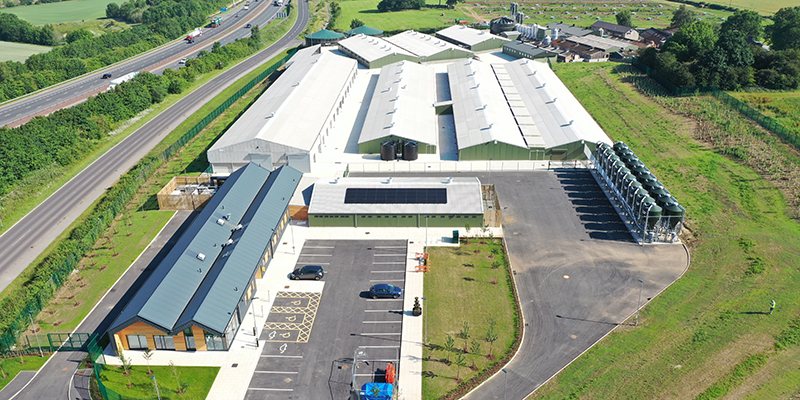Study to explore how livestock waste and insects can generate clean energy

A new project has received Defra funding to explore how livestock waste and insect farming can generate clean energy, whilst providing commercial opportunities for farmers.
The ‘DELIVER’ project, led by BACB Renewables and the University of Leeds, aims to support farmers to raise animals and crops at reduced carbon and energy costs, while boosting productivity.
The study is one of 50 projects which has secured funding from Defra and UKRI as part of the Farming Innovation Programme.
The first part of the DELIVER project will involve baselining energy demands before looking at energy reduction, generation, and storage opportunities.
In parallel, different waste samples such as pig slurry, poultry manure and insect frass (larvae castings and excrement) will be analysed.
Researchers will identify the most viable waste feedstock for biogas and insect production using a newly installed 40ft walk-in insect bioreactor provided by insect tech firm Entocycle.
They will explore how farm waste can be transformed into renewable energy and also how circular SMART systems may be used to diversify income streams and protect the local environment.
Trials will take place at the National Pig Centre, the UK's largest and most advanced facility for research into pig nutrition, behaviour, welfare and health.
Dr Lloyd Glanville, managing director at BACB Renewables said integrated farming technology provided huge potential for farmers to tackle climate challenges.
“We have high hopes that this study will bring us one step closer to meeting net zero in farming.”
Dr Gesa Reiss, smart agri-systems senior innovation fellow at the University of Leeds, added: “To meet the challenges of sustainable food production and environmental sustainability, we must continue to work with partners to drive innovation and discovery in research.
"This is an excellent example of where academics, businesses and partners are coming together to tackle challenges in the UK farming industry.
"We’re excited to see the outputs of this study and growing our collaborative partnerships in the future.”








